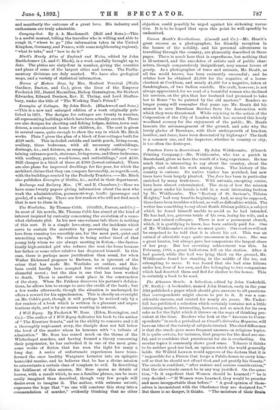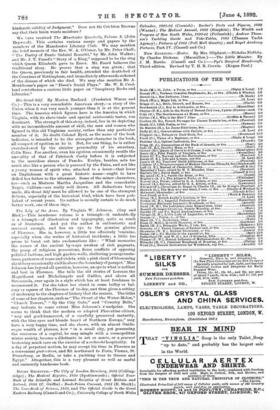The Athenian Oracle. A Selection, edited by John Underhill. (W.
Scott.)—A bookseller, named John Dunton, early in the year 1691 published a paper which should give answers to all questions that correspondents might choose to put to it. It was a con- siderable success, and existed for nearly six years. Mr. Under- hill has published a selection which certainly contains not a little interesting matter, interesting, however, not so much for its own sake as for the light which it throws on the ways of thinking pre- valent at the time. Readers who look at the "Answers to Corre- spondents" in such a periodical as Cassell's Saturday Magazine, will have an idea of the variety of subjects treated. The chief difference is that the oracle gave more frequent answers on religious topics. It is quite certain, for instance, that prayers for the dead are sin- ful, and is confident that punishment for sin is everlasting. On secular topics it commonly shows good sense. Tobacco it thinks to be neither good nor bad, an opinion which the world generally holds. Sir Wilfrid Lawson would approve of the dictum that it is "impossible for a Person that keeps a Public-house to carry him- self so that he should not offend God, and yet gratify his Guests." The oracle is confident, "after mature and serious consideration," that the slave-trade cannot be in any way justified. On the ques- tion, "Is it expedient that Women should be Learned ? " he is very decided :—" If Women were Learned, they would be prouder and snore insupportable than before." "A good opinion of them. selves is inconsistent with the Obedience they are designed for." But there is no danger, it thinks. "The moisture of their Brain.
hindereth solidity of Judgment." Does not Sir Crichton Browne say that their brain wants moisture ?



































 Previous page
Previous page